NIAID welcomes our new Council members: Raul Andino, Aftab A. Ansari, Wendy M. Book, Sally L. Hodder, Karen E. Nelson, and Cara Wilson. Go to NIAID Advisory Council—January 2016 to see the video of Dr. Fauci introducing our new Council members.
- Senior Staff
- Acquired Immunodeficiency Syndrome (DAIDS) Subcommittee
- Allergy and Immunology (DAIT) Subcommittee
- Microbiology and Infectious Diseases (DMID) Subcommittee
Senior Staff
- Chairperson: Anthony S. Fauci, M.D., director, NIAID, NIH, HHS
- Executive secretary: Matthew J. Fenton, Ph.D., director, DEA, NIAID, NIH, HHS
- Ex officio members:
- Francis S. Collins, M.D., Ph.D., director, NIH, HHS
- Other ex officio members are listed beneath their subcommittee.
Acquired Immunodeficiency Syndrome (DAIDS) Subcommittee
| Photo | Name, Biosketch, and Date Term Ends |
|---|---|
 |
Aftab A. Ansari, Ph.D., is professor in the Department of Pathology and Laboratory Medicine at Emory University School of Medicine. He is a basic immunologist with a broad background in transplantation immunology and infectious disease research, which includes serving as scientific director of the U.S. Navy overseas research laboratories in Cairo, Egypt, and Jakarta, Indonesia. Dr. Ansari’s current research focus is on defining methods and strategies to reduce and/or prevent gastrointestinal pathology in the SIV-infected nonhuman primate model of HIV infection to help facilitate generating effective antiviral immune responses. (October 31, 2019) |
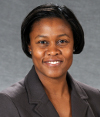 |
Amanda Castel, M.D., M.P.H., is associate professor of epidemiology and pediatrics at The George Washington University. She is a medical epidemiologist with training in preventive medicine and applied public health epidemiology. One of Dr. Castel’s research areas is characterizing outcomes along the HIV-care continuum through the use of public health surveillance and clinical data. She also develops interventions to maximize outcomes along the continuum, including routine testing expansion, enhancing retention in care and medication adherence, and reducing community viral load. (October 31, 2018) |
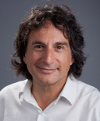 |
John Guatelli, M.D., is professor of medicine at the University of California, San Diego, where he specializes in the clinical aspects of infectious diseases and provides primary care to HIV-infected people. Dr. Guatelli is an expert molecular virologist and recognized for his studies of the HIV-1 proteins Vpu and Nef, which provide the virus with immune-evasion activities. He is well known for sharing in the discovery that BST-2 (tetherin) is the innate host defense protein (restriction factor) that Vpu counteracts to stimulate the release of virus particles from infected cells. (October 31, 2018) |
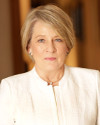 |
Sally L. Hodder, M.D., is professor of medicine at West Virginia University School of Medicine. Dr. Hodder also serves as associate vice president for clinical and translational research and director of the West Virginia Clinical and Translational Science Institute. Before coming to West Virginia University, she directed adult HIV programs at Rutgers University, Newark campus. Dr. Hodder’s research has focused on HIV treatment as well as prevention among women; she served as protocol chair for the HIV Prevention Trials Network 064 study, a large multicenter study assessing HIV incidence among U.S. women at high risk for acquiring HIV. (October 31, 2019) |
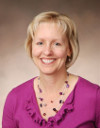 |
Cara Wilson, M.D., is professor of medicine (infectious diseases subspecialty) and immunology at the University of Colorado, Denver (UCD). She is a physician-scientist whose laboratory studies the human immune response to HIV-1 infection and the factors that drive HIV-1 pathogenesis and inflammation in intestinal mucosal tissue, especially microbiome-related factors. Dr. Wilson is a member of the UCD Mucosal Inflammation Program, which provides a supportive infrastructure for studies of intestinal inflammation. She also has extensive experience in designing and implementing clinical trials focused on HIV-associated immune activation and immune-based therapies through her longstanding involvement in the AIDS Clinical Trials Group. (October 31, 2019) |
 |
Chris Wilson, M.D., is director of the Global Health Discovery and Translational Sciences Program at the Bill and Melinda Gates Foundation. He leads a team that targets fundamental scientific and technological advances in global health to discover new ways to prevent, treat, and diagnose disease. Before coming to the Gates Foundation, Dr. Wilson was chairman of the Department of Immunology at the University of Washington and head of its graduate program in immunology. He has served on several national advisory panels, including the Institute of Medicine Vaccine Safety Review Committee. Dr. Wilson is a member of the Advisory Committee to the Director, NIH. (October 31, 2017) |
Ex officio member:
|
Allergy and Immunology (DAIT) Subcommittee
| Photo | Name, Biosketch, and Date Term Ends |
|---|---|
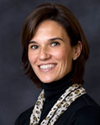 |
Maria Laura Acebal, J.D., is the former CEO of the Food Allergy and Anaphylaxis Network (FAAN). She joined FAAN in 2009 and brought with her the nonprofit she founded, Safe@School Partners. Before working in the area of food allergies, Maria worked at the global consulting firm McKinsey & Company and practiced law at Williams & Connolly. (October 31, 2016) |
 |
Wendy M. Book, M.D., is professor of medicine at Emory University School of Medicine in the Department of Medicine, Division of Cardiology. She is director of the Emory Adult Congenital Heart Center, specializing in the care of adults with congenital heart defects. In a volunteer capacity, Dr. Book serves as president on the executive board of the American Partnership for Eosinophilic Disorders (APFED). Through her work with APFED, she advocates for the needs of patients with eosinophil-associated disorders. (October 31, 2018) |
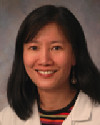 |
Anita S. Chong, Ph.D., is professor of surgery at the University of Chicago. She is a transplant immunologist with research interests in transplantation tolerance, how infection promotes rejection, maintaining tolerance, and defining new therapies to prevent solid organ rejection. Dr. Chong’s research includes a multidisciplinary effort to apply new nanotechnologies to develop self-adjuvanting vaccines for infectious diseases. She has served on several grant review committees and is co-chair of the Basic Science Committee of the Transplantation Society. (October 31, 2017) |
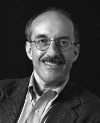 |
Stephen J. Galli, M.D., is Mary Hewitt Loveless, M.D., Professor; chair and professor of pathology; and professor of microbiology and immunology at Stanford University. He investigates the roles of mast cells and basophils in health and disease, including in host defense and allergic disorders such as food allergy and asthma. Dr. Galli has been a member or chair of NIH study sections and co-chaired an NIAID Food Allergy Research Expert Panel. He belongs to the Collegium Internationale Allergologicum where he served as president from 2010 to 2014, Institute of Medicine of the U.S. National Academy of Sciences, and Accademia Nazionale dei Lincei. (October 31, 2018) |
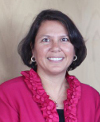 |
Gurjit Khurana Hershey, M.D., Ph.D., is Kindervelt Endowed Chair in Asthma Research and professor of pediatrics at Cincinnati Children's Hospital Medical Center and the University of Cincinnati College of Medicine. She is also director of the Medical Scientist Training Program at the University of Cincinnati and co-director of the Office of Pediatric Clinical Fellowships at Cincinnati Children's Hospital Medical Center. Dr. Khurana Hershey’s research focuses on the overall goal of improving the health of children with asthma. Her laboratory integrates clinical, epidemiologic, translational, and basic research approaches to identify and delineate the mechanistic basis of genetic and environmental factors that contribute to the development, progression, and persistence of asthma. (October 31, 2018) |
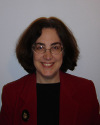 |
Arlene Sharpe, M.D., Ph.D., is George Fabyan Professor of Comparative Pathology at Harvard Medical School. She is also head of the Division of Immunology in the Department of Microbiology and Immunobiology and co-director of the Harvard Institute of Translational lmmunology. Dr. Sharpe is a leader in the field of costimulation. Her laboratory currently focuses on the roles of T cell costimulatory pathways in regulating pathogenic and protective immune responses needed for inducing and maintaining T cell tolerance and effective antimicrobial and antitumor immunity. Her laboratory is also involved in studies aimed at translating fundamental understanding of T cell costimulation into new therapies for autoimmune diseases, chronic viral infections, and tumor immunotherapy. (October 31, 2017) |
Microbiology and Infectious Diseases (DMID) Subcommittee
| Photo | Name, Biosketch, and Date Term Ends |
|---|---|
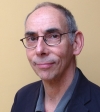 |
Raul Andino, Ph.D., is professor of microbiology and immunology at the University of California, San Francisco, where he specializes in RNA viruses, with a focus on molecular biology, immunology, and evolutionary biology. His research includes mechanisms of replication, antiviral RNAi, and adaptation. Dr. Andino is interested in the evolution of the immune system and the role of virus population diversity in pathogenesis. Understanding the rules that control host and virus evolution has important implications for vaccine development and antivirals. He has served on several national advisory panels and is currently chair of the NIAID Systems Biology Program (SysBio) Steering Committee. (October 31, 2019) |
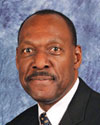 |
Norman W. Baylor, Ph.D., is president and CEO of Biologics Consulting Group, Inc. Previously, Dr. Baylor was the director of the Office of Vaccines Research and Review in the Food and Drug Administration’s Center for Biologics Evaluation and Research. He evaluated and facilitated the development and licensure of numerous vaccines. Dr. Baylor served as FDA’s liaison to CDC’s Advisory Committee on Immunization Practices, U.S. Department of Health and Human Services National Vaccine Advisory Committee, and the Advisory Commission on Childhood Vaccines. He also served as an expert advisor to the World Health Organization on several global vaccine initiatives. (October 31, 2016) |
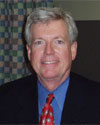 |
Robert B. Belshe, M.D., is professor of medicine, pediatrics, and molecular microbiology and director of the Center for Vaccine Development at Saint Louis University. He is principal investigator of the NIH-funded Vaccine and Treatment Evaluation Unit at the University. Dr. Belshe is an expert in clinical trials design and execution, and his laboratory focuses on antibody responses to viral vaccines, particularly influenza. He conducted the vaccinia dilution studies for the NIH biodefense initiative and chaired the NIH/industry cooperative phase III pivotal licensing studies on live attenuated influenza vaccine and the NIH and GlaxoSmithKline Herpevac Trial for Women. (October 31, 2016) |
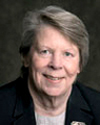 |
Diane E. Griffin, M.D., Ph.D., is university distinguished service professor and Alfred and Jill Sommer Chair of the W. Harry Feinstone Department of Molecular Microbiology and Immunology at the Johns Hopkins Bloomberg School of Public Health. Dr. Griffin’s research interests focus on the pathogenesis of viral diseases, particularly measles and alphavirus encephalitis. Her studies address issues related to virulence and the role of immune responses in protection from infection and clearance of infection. Dr. Griffin is U.S. chair of the Viral Diseases Panel of the U.S.-Japan Cooperative Medical Sciences Program and a member of the Councils for the National Academy of Sciences and the Institute of Medicine. (October 31, 2016) |
 |
Karen E. Nelson, Ph.D., is president of the J. Craig Venter Institute (JCVI). Before being appointed president, she was director of JCVI's Rockville campus and director of human microbiology and metagenomics in JCVI’s Department of Human Genomic Medicine. Dr. Nelson has extensive experience in microbial ecology, microbial genomics, microbial physiology, and metagenomics. Since joining the JCVI legacy institutes, she has led several genomic and metagenomic efforts, including the first human metagenomics study, which was published in 2006. Ongoing studies in her group include metagenomic approaches to studying the ecology of the gastrointestinal tract of humans and animals, the relationship between the microbiome and various human and animal disease conditions, and reference genome sequencing and analysis primarily for the human body. (October 31, 2019) |
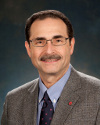 |
Larry S. Schlesinger, M.D., is Samuel Saslaw Professor and chair of the Department of Microbial Infection and Immunity in the College of Medicine at The Ohio State University. He also serves as director of the OSU Center for Microbial Interface Biology and Medical Scientist Training Program. Dr. Schlesinger is a cellular immunologist whose studies focus on the pathogenesis of tuberculosis and other airborne infections caused by intracellular pathogens that subvert lung immune mechanisms. He has been a member or chair of several study sections at NIH and other federal and private agencies. (October 31, 2017) |
Ex officio members:
|
For more information, see the Advisory Council portal.

